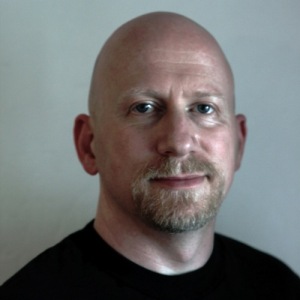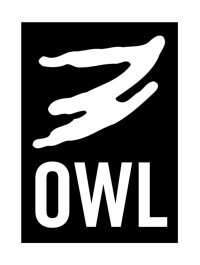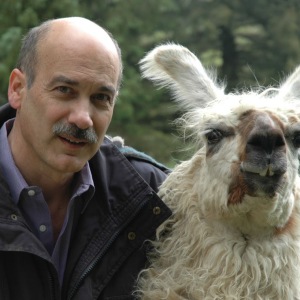Last [month], the Center for Family Life Education (CFLE) hosted the Sex Ed Conference and it was an amazing time! There’s nothing like a few hundred sex educators sitting around, sharing tips, and telling stories.
Although my work focuses on working with adults while many of my colleagues work with youth or young adults, I got a lot out of the presentations. After all, many of the challenges people face show up in similar ways, regardless of how old they are. And I find that a lot of adults have to take some time to deal with the misinformation or lack of education from their childhoods and teen years, so the more I understand the sex ed needs of kids, the easier it is for me to help grown-ups.
I was really impressed with the number of workshops and presentations and as always happens at these events, it was hard to choose which ones to attend. But some of the highlights included The Early Years: Promoting Healthy Development in Young Children, which was inspired by Robie Harris’ excellent guides It’s Perfectly Normal: Changing Bodies, Growing Up, Sex, and Sexual Health and It’s Not the Stork: A Book about Girls, Boys, Babies, Bodies, Families and Friends If you’re a parent or you just have kids in your life, check them out. Part of what I especially liked about this workshops was the observation that because most people think of sexuality as an adult experience, we often forget that we need to talk with children about it. Gender, body image, personal and cultural values, intimacy, love- these are all deeply connected to sexuality and when we don’t make them part of teaching kids, they grow up with a lot more confusion. Even if kids don’t recall everything you tell them, they remember that you talked about it and know that they can come to you when they have questions. As the presenter pointed out, silence about sex is still communication about your beliefs or discomfort, so it doesn’t get you off the hook. I was also struck by the observation that many parents start planning for their kids’ education as soon as they’re born, so why doesn’t that include sex ed?
Next up, I sat in on “Was It Good for You?” – Evaluating Your Sexuality Education Program, which was taught by Kurt Conklin, the Program Director at the Sexuality Information and Education Council of the United States. It’s important to assess sex ed programs for a lot of reasons- to show whether you’ve had the effect you want, to measure the value of a program, and to ensure ongoing support and funding for successful classes. With all of the ways in which sex ed is attacked, being able to prove its impact is important.
The next presentation I went to was Sex and Happiness because I’ve always been struck by how little discussion of happiness there is in sexuality education. It’s often assumed that if you have an orgasm, you’re satisfied, but there’s a big difference between pleasure and happiness. As the presenters pointed out, happiness is the result of the story we tell ourselves about what happens to us. I was especially intrigued by their observation that one source of happiness is the depth and breadth of our relationships. Not just our sexual/romantic ones, but all of our relationships with the people around us.
Another point they made is that there are a lot of common “happiness blockers” including:
- Saying or thinking “I’d be happy if only…”
- Thinking that we “should” or “have to” be a certain way in order to deserve happiness
- Worrying about “what if”
I see all of these show up in people’s sex lives and relationships and while it may sound trite, the more we can let go of thinking that we need to bargain or buy happiness, the better off we are.
After dinner, we watched Let’s Talk About Sex, an excellent documentary about how attitudes in the US about sex affect teens. Given that sex is used to sell everything while information about it is withheld from young people, we end up with skyrocketing rates of teen pregnancy and sexually transmitted infections, which costs us billions of dollars. The film does a great job of capturing the different facets of these issues without overwhelming viewers with statistics or information. It’s really quite good and here’s the trailer:
On the second day of the conference, I started off at Peggy Brick’s Ten No-Fail Strategies for a Lifespan Approach to Sexuality Education. Ms Brick was the Executive Director for CFLE and was also the President of the Consortium on Sexuality and Aging at Widener University. I was especially interested in this one because most sex ed focuses on the here-and-now, which leaves people unprepared for the many joys and changes that getting older can bring to sexuality. It was really wonderful to see some of the exercises and activities that she’s developed to help people think about how their sexuality might change or how it might fit into their life story. For example, one exercise was a timeline and we each imagined a person’s life path, marking on the timeline what kinds of relationships they might engage in, when they might have children, what kinds of safer sex/contraception choices they might make at different ages, and so forth. But even more fruitful was the conversations that arose when we compared timelines. It was a great way to explore our assumptions and values in a really safe way.
Next up was my presentation How to Be a Top Presenter, which is my workshop on the principles and practices of sex education. In my experience, a lot of educators pick up techniques by watching other teachers but they might not understand why certain tools work the way they do. So I really enjoy explaining some of the ways that learning theories, adult development, sexuality, and presentation skills all come together. I had a great time! Plus, my parents came to watch, which was the first time they’ve ever been able to see me teach. 
Since lots of people couldn’t make it to the conference, we were live tweeting our little fingers off and it was really good to see how many folks were helping spread the word. I took some screenshots of the tweets so if you’d like to see what folks were saying, here’s day one and day two. Start at the bottom and work your way up from there. You may need to click on the images to enlarge them enough to read.
So there you have it. Conferences like this one can sometimes be a mixed bag but CFLE did an amazing job of it and it seemed pretty flawless. If you want to be sure to find out about next year’s event, follow them on twitter or check out their website. I’ll see you there next year!





